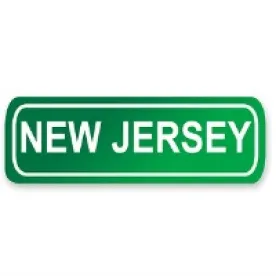Residential real estate developments that reopen their amenities amid an improving public health picture would receive COVID-19-related immunity under legislation that is working its way through the New Jersey Legislature.
New Jersey has lifted most COVID-19-related restrictions, as the number of COVID-19 cases in the state declines and more individuals receive vaccinations. State lawmakers previously approved immunity from COVID-19 lawsuits for medical facilities and healthcare workers, but legislation aimed at protecting businesses from such liability has started gaining traction.
In mid-June, a New Jersey Assembly committee advanced a bill that would shield community associations and similar entities from lawsuits over the spread of COVID-19, except in cases of “a crime, actual fraud, actual malice, gross negligence, recklessness, or willful misconduct.” The action by the Assembly’s Community Development and Affairs Committee clearly shows approval of a series of amendments to a nearly identical bill the state Senate had passed.
In early-June, the state Senate unanimously approved a bill under which “any illness, injury, death, or other damages arising from, or related to, an exposure to, or transmission of, COVID-19 on the premises of a planned real estate development shall not give rise to any cause of action.” The Senate version provided that the immunity would not apply to “acts or omissions constituting a crime, actual fraud, actual malice, gross negligence, recklessness, or willful misconduct.”
In unanimously approving changes to the Senate bill, Assembly committee members responded to industry advocates who have lobbied for the legislation to address concerns that reopening clubhouses, playgrounds, and swimming pools might lead to a spike in claims for COVID-19-related damages. Industry observers note that insurance coverage typically is not available for such claims, and the resulting litigation would likely bankrupt many New Jersey’s community associations, which are mostly nonprofit corporations run by residents on a volunteer basis.
Committee members indicated that, for the immunity apply, warning signs would be needed at the entrance to communal spaces. In addition, the immunity could not affect potential worker’s compensation claims.
The legislation is pending. As amended by the New Jersey Assembly committee, the provisions of the bill would expire on January 1, 2022.




 />i
/>i

